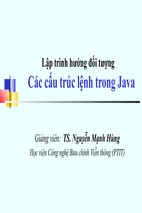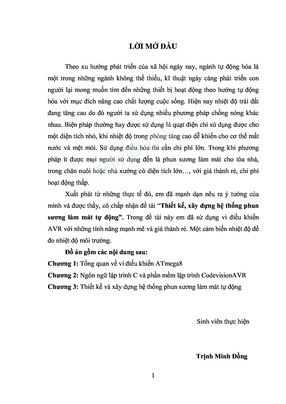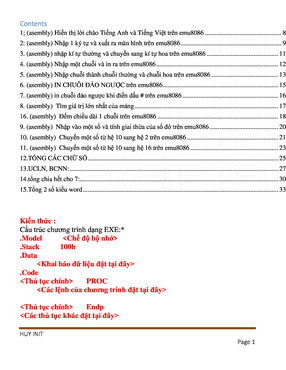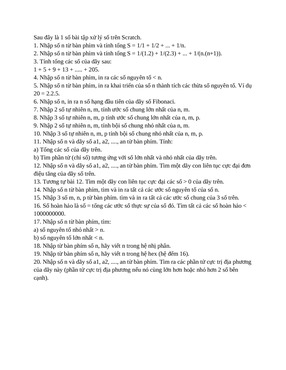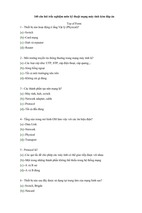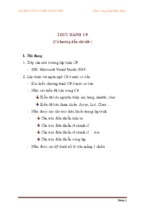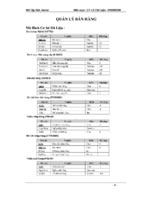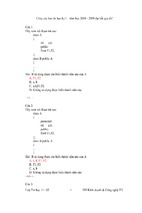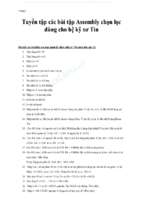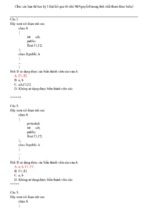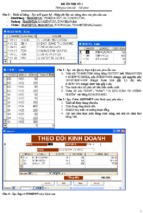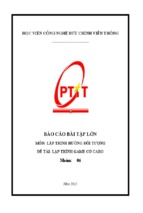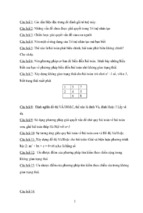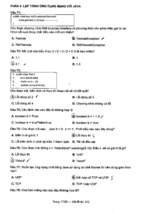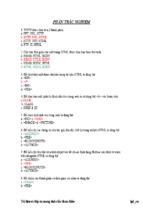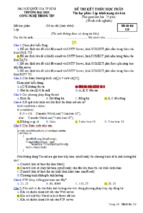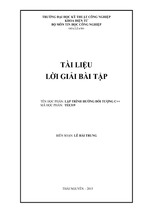88 C Programs
by JT Kalnay
This book is dedicated to Dennis Ritchie and to Steve Jobs.
To Dennis for giving us the tools to program.
To Steve for giving us a reason to program.
Published by jt Kalnay
Copyright 2012, JT Kalnay
This book is licensed for your personal use.
This book may not be re-sold.
However, this book may be freely given away to other people.
If you would like to share this book with another person, please feel free to do so.
Discover other titles by jt Kalnay at:
www.jtkalnay.com
About This Book
This book is not organized in a traditional chapter format.
Instead I have chosen to include example programs that exhaustively illustrate the
important points of C in an evolutionary manner. By working through these programs
you can teach yourself C. I assume you already know how to program and are familiar
with standard algorithms.
The programs that I present are not, by themselves, complete applications. The
programs are “single-issue teaching programs”. Experienced programmers who are
learning a new language have told me time and time again that they mainly want to see
the functionality of the new syntactic and semantic elements. The programmers tell
me that they will be able to think of the applicability of the feature to their project.
When necessary, I provide a sample application to give a feel for how the new element
might be employed.
The programs are presented in an order that presents the simplest, most straightforward
aspect of a new element first. Subsequent programs present the more subtle or
confusing aspects of a new element. This is a proven pedagogical approach for
teaching C that I have presented to over 1,000 professionals and college students.
This book assumes that you are already a programmer and are able to learn well on
your own.
Good luck in your study of C.
4
Table Of Contents
Simple.c
simplest C program, main, program entry point
helloworld.c one printf
prog1.c
more printf
prog2.c
comments, case sensitivity
prog3.c
variable declaration and initialization
prog4.c
printf output
ops.c
C operators
prog4a.c
printf output
prog5.c
C data types
pg34.c
sizeof(var)
prog6.c
operators and precedence
prog7.c
mixed mode arithmetic
prog8.c
modulus
steve.c
relational operators
prog9a.c
three types of loops
prog10.c
for loop
prog11.c
for loop, scanf
prog12.c
nested for loops
prog13.c
while loop
prog14.c
while loop
5
prog15.c
while loop, do loop
if.c
if statements
16.c
math.h
19.c
logical operators and expressions
20.c
complex decision structures
21.c
switch statement
errors.c
common syntax errors
22.c
arrays
23.c
array boundaries
25.c
more array boundaries
26.c
bowling scores, arrays
27.c
character arrays
29.c
function declaration and usage
30.c
calling subroutines
31.c
passing constants to subroutines
32.c
passing variables to subroutines
33.c
subroutine returning value
35.c
multiple files compiled together
valref.c
call by reference, call by value
36.c
passing array to subroutines
37.c
passing pointer to subroutine
38.c
sorting array of integers
sortstep.c
sorting example
6
39.c
two dimensional array
twodim.c
two dimensional array to subroutine
testarrays.c
more arrays
testarrays1.c more arrays
prog40.c
static, automatic, global
scope.c
scope of variables
41.c
recursion
testpop.c
stack
42.c
struct keyword, structures
43.c
structures
45.c
UNIX time.h file
46.c
Arrays of Structures
47.c
structures and arrays
48.c
strlen
49.c
strcat
50.c
strcmp
52.c
getchar gets
53.c
ctype.h, string functions
charlarge.c
characters as large integers
55.c
structures and strings
57.c
pointers
58.c
pointers
59.c
pointers to structures
string processing
7
60.c
linked list pointers
malloc, memory allocation
valref.c
pointers and functions
76.c
getchar, putchar
77.c
file operations, fopen, fprintf, fclose, getc, putc
uitp.c
file i/o and string processing
argtest.c
arc, argv, dealing with command line arguments
envtest.c
interface to UNIX environment
sol20.c
argc, argv
78.c
register const storage qualifiers
speed1.c
inefficiency
speed2.c
efficiency
64.c
copying strings using pointers
73.c
printf in depth
74.c
scanf in depth
75.c
scanf in depth
67.c
bit operations
bits.c
int octal hex binary display
71.c
#ifdef conditional compile
quicksort.c
quicksort pointer example
ptrtofunc.c
pointers to functions
8
Simple.c
Simplest C program possible
main ( )
{
}
main is a C keyword.
It is the program entry point.
It does not need to be in column one.
main may take arguments. We will deal with them later.
The empty round brackets ( ) indicate that we aren't going to worry about the argument
list at this point.
A C comment is enclosed by /* ……. */
main ( ) /* program entry point */
{
/* start of block, start of scope */
Block body
Block blody
…
Block body
}
/* end of block */
{ is the start of scope character
} is the end of scope character
{ and } are referred to as “curly brackets” in this text.
See also "simplest C program possible: Part II full ANSI! compatability" on
page 20.2
9
hello_world.c
Simple program with printf output
All C statements end with a semicolon ;
main ( )
{
/* printf is a c subroutine that you get access to through the standard io
library */
/* we will cover #include later */
/* in its simplest form printf takes a character string to display */
/* it may also take other arguments, we will examine these
later */
/* printf returns a count of the number of characters it
displayed */
/* the count can be ignored */
printf("hello world \n");
}
10
prog1.c More on Printf
/* stdio.h is the standard input library that provides printf, scanf, and other i/o
routines */
/* #include tells the compiler where to look for input/output routines you call */
/* #include < name of .h file > will add that .h file to your compilation module */
#include
int main ( )
{
/* curly brackets mark the beginning and end of the scope of a compound
statement.
A compound statement may be a function body, the body of a loop, the body
of a conditional,
several statements, … * /
printf("C Programming\n");
printf("C Programming\n");
}
printf("string to display"); /* string to display is inside quotations” */
/* can provide format specifiers that describe HOW to display things (e.g., as integers, as
strings) */
/* if you put in a format specifier you need to provide a variable to satisfy the format specifier
*/
printf("string format specifier", variables to satisfy format specifiers);
11
progl.c supplemental variable declaration, printf output, return value
/* to compile with ansi compiler with defaults
acc prog1.c will produce a.out
if (ompile is successful no "success indicator" is generated
if errors, compiler messages will be generated
executable can be run by typing a.out */
/* to compile with ansi compiler and specify executable's
name
acc -o
progl prog1.c
will produce progl if (ompile is
successful */
/* to pass source code through a very picky pre compiler
alint progr1.c
*/
/* curly brackets mark the beginning and end of the scope of a compound statement.
A compound statement may be a function body, the body of
a loop, the body of a conditional, several statements */
/* c is an expression language
every statement returns a value,
which may be discarded or ignored if unneeded */
/* the next program shows that printf returns the number of characters it printed. */
12
C Programming
value of xyz is 14
C Programming
#include
int main()
{
/* int declares xyz as a variable of type integer */
int xyz;
/* xyz gets return value from printf */
xyz = printf(“C Programming\n”);
/* %i format specifier says print out the value of xyz as an integer */
printf(“value of xyz is %i \n”,xyz);
/* we can ignore the return value of printf */
/* \n is the newline character */
printf(“C Programming\n”);
} /* program exit point */
13
Compile, link, run sequence
You can compile C modules to produce object files
You can assemble Assembler modules to produce object files
You can also compile other (e.g., Fortran, Pascal) programs to produce object files
You can then link all these together
ACC stands for ANSI C compiler
Acc name_of_c_file produces executable a.out
.c file
c file
.o file
object file
.asm file
assembler file
.for file
fortran file
ANSI C Compiler
Link Editor
.pas file pascal file
.cob file
COBOL file
Executable
14
prog2.c
comments case sensitivity
#include
int
ma
in
()
{
/* comments start with slash asterisk
can span several lines, and end with asterisk slash */
int foobar;
/* variable names are case sensitive */
/* all C statements except comments are case sensitive
int is OK, INT is not */
/* white space is ignored */
printf(“C Programming\n");
printf("For fun and profit\n"); /* comments can be at the end of a line */
printf ("Hello /* this is not a comment */ dolly \n");
Compiler
Error
print/*comment cannot be nested*/f("H1\n");
printf("abc\n");
/* comments that span lines
printf("det\n");
can cause unexpected results… */
/* the printf(“det \n”); statement would not be compiled b/c it is inside a
comment! */
Printf(“value of foobar is %i\n”,Foobar);
}
15
Compiler
Error
Storage Classes
Table I
Type
How
Declared
Auto
keyword or
in function
or in block
Static
keyword in
function or
block
Outside all
functions
Where
Stored
Stack
Initial Value
Scope
Lifetime
None
Function or
block
Function or
block
Heap
Zero if not
explicitly
initialized
Function or
block
Entire life of
program
Heap
Entire
program
Entire life of
program
Register
Register
keyword
Same as auto
Same as auto
Static
external
Static
keyword
outside all
functions
A register, if
one is
available
Heap
Zero if not
explicitly
initialized
None
Zero if not
explicitly
initialized
Same file
after
definition
Entire life of
program
Auto
Static
internal
External
C supports different storage classes that you can force by using explicit keywords.
16
prog3.c variable declaration and initialization
#include
int main( )
{
/* declare an integer */
int x;
/* do not count on uninitialized variables to have a certain value */
/* they could be zero and probably will be zero but, could be ??? */
printf("Unitialized x = %i\n",x);
x = 1 + 2;
printf("x with 1 + 2 = %i\n", x);
}
17
Different ways to declare and initialize variables
Type_of_variable
name_of_variable
Int
x;
Float
y;
Char
c;
type_of_ variable
name1, name2, … ;
int
x,y,z;
float
f1 ,f2;
char
c1,
/* first char * /
c2;
/* another char * /
type_of_ variable
name_of_ variable = initial_value;
int
a
= 7;
float
f1
= 6.7f;
type name = initial, name = initial, ... ;
int a = 6, b = 13, c = 12;
18
prog4.c
printf output of variables
#include
/* this program adds two integer values and */
/* displays the results */
/* it also demonstrates two ways to initialize a variable */
int main( )
{
/* declare variables */
int v l; int v2; int vsum;
/* declare and initialize variable */
int all_in_one = 5;
/* initialize values */
v l = 1;
v2 = 2;
/* compute */
vsum = v l + v2;
/* print result */
printf("The sum of %i and %i is %i\n",vI,v2,vsum);
/* display all in one */
printf("all_in_one => %i \n",all_in_one);
/* case sensitivity error, would not compile */
/* printf("all_in_one => %i \n",ALL_in_one); */
/* printf error * /
print("all_in_one => %i \n",all_in_one);
}
19
OPERATORS: RETURN VALUE AND SIDE EFFECTS
In C, all operators have a return value and some have
"side effects"
A return value isa value given back. For example in the
code:
int a;
8= 3 + 4;
The addition operator (+) returns the result of adding the values 3 and 4.
A side effect is a change in a memory location.
For example:
int a;
a= 7;
The assignment operator (=) changes the memory location we call 'a' to contain the
value 7.
The assignment operator also has a return value, namely the new value of a (in our
case 7). In this way we can say:
int a,b,c;
a=b=c=7;
7 is assigned into c, c's new value (7) is assigned into b, etc.
NOTE: any statement that has no side effecvt and who's return value is not used adds
zero value
to a program.
3 + 4;
the 3 and 4 are added returning 7 which is discarded (like all intermediate results when
no longer
needed). Most compilers would flag a line like 3 + 4; with the warning:
"Statement has no effect"
20
- Xem thêm -


